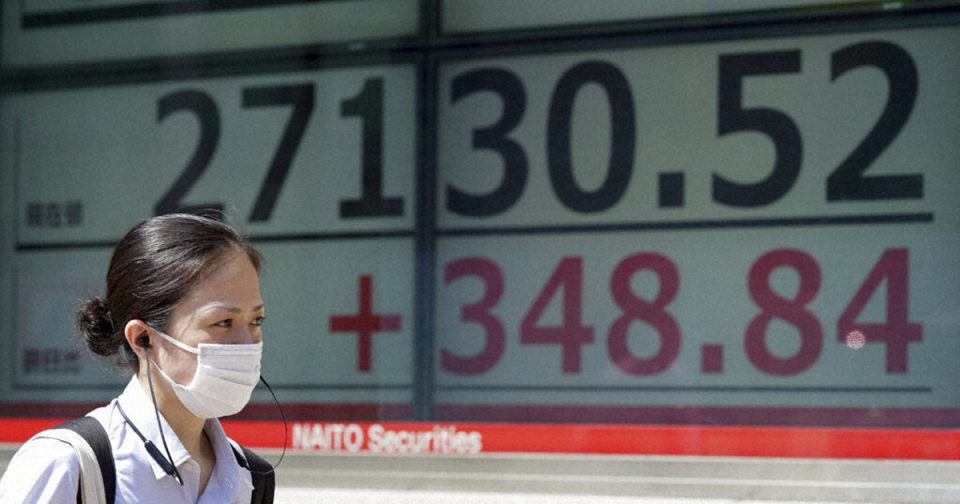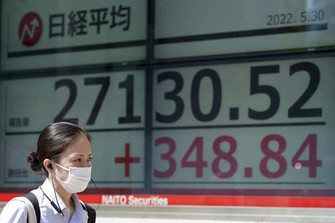TOKYO (Kyodo) — Capital spending by Japanese companies rose 3.0 percent in the January-March quarter from a year earlier, marking the fourth consecutive quarter of increase as firms pushed for digital and green transformation, government data showed Wednesday.
Investment by all nonfinancial sectors for purposes such as building factories and adding equipment totaled 14.9 trillion yen ($115 billion), according to the data released by the Finance Ministry.
Capital expenditures by manufacturers climbed 5.9 percent, up for the fourth straight quarter, to 4.9 trillion yen, lifted by the transportation equipment industry as carmakers invested in digital transformation as well as in achieving the goal of carbon neutrality, or bringing carbon dioxide emissions to net zero.
In the nonmanufacturing sector, spending expanded 1.6 percent, rising for the fourth consecutive quarter, to 10.0 trillion yen, as real estate businesses saw more new contracts, while wholesalers and retailers aimed to introduce new stores and promoted digital transformation.
“Business investments by manufacturers have largely recovered to the pre-pandemic level, while those by nonmanufacturers remain weak,” a ministry official said.
The official added that the latest data showed that “the Japanese economy is picking up, although some businesses are still affected by the coronavirus pandemic fallout.”
Takeshi Minami, chief economist at the Norinchukin Research Institute, said there was brisk demand among companies for work on decarbonization and digitalization.
The government has pledged to realize a carbon neutral society by 2050, and many corporations including major auto makers are shifting away from fossil fuels.
“Environmental measures will continue to be one of the factors to ramp up business investments,” he said.
Both the pretax profits and sales of companies covered in the ministry’s survey increased, partly due to recent surging fuel prices stemming from Russia’s war in Ukraine.
The pretax profits increased 13.7 percent to 22.8 trillion yen, helped by signs of improvement in the chemical industry, as petrochemical makers were able to pass on the raw material cost increases into their sales prices, the official said. Oil wholesalers also saw an expansion.
Sales grew 7.9 percent, rising for the fourth consecutive quarter, to 360.8 trillion yen, also lifted by chemical product makers and wholesalers.
Taking into account the latest capital expenditure figures, including spending on software, the Cabinet Office is scheduled to release revised gross domestic product data for the same quarter on June 8.
Preliminary GDP data showed the world’s third-largest economy contracted an annualized real 1.0 percent in the first quarter of the year, partly due to slow personal consumption amid restrictions on economic activities to contain the spread of the coronavirus.
Norinchukin’s Minami forecast GDP would be revised slightly downward as capital spending rose only 0.3 percent from the October-December period on a seasonally adjusted quarter-on-quarter basis.
The ministry surveyed 32,112 companies capitalized at 10 million yen or more, of which 22,202, or 69.1 percent, responded.



